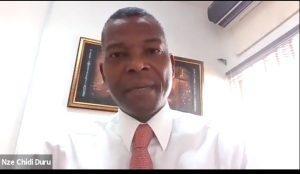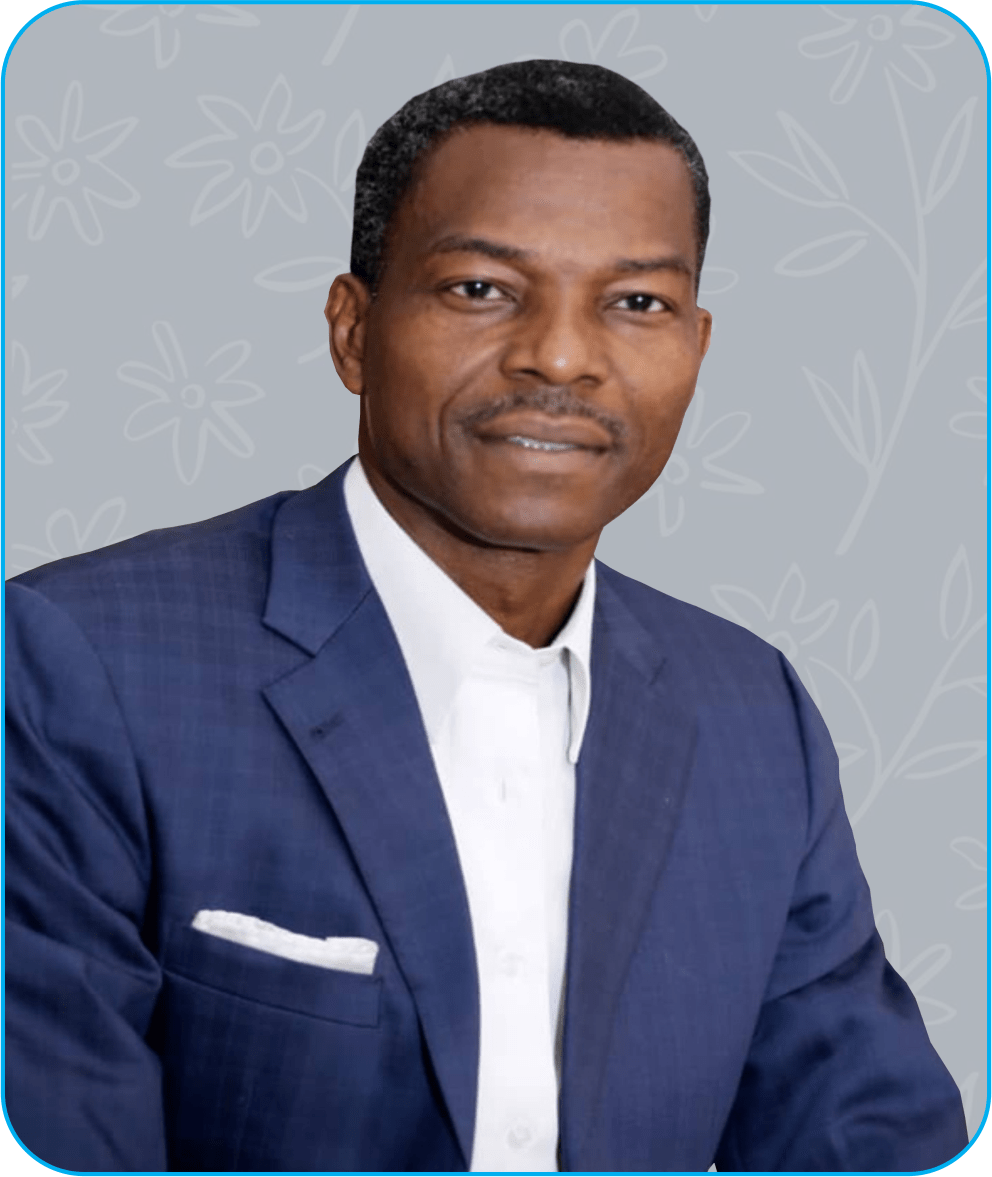In the face of rising unemployment, especially Nigeria where the National Bureau of Statistics (NBS) puts the current level at 33 percent, much emphasis is being placed on entrepreneurship to lift people with potential skills out of poverty.
In this exclusive interview with Prime Business Africa, seasoned entrepreneur and business leader, Nze Chidi Duru who celebrates November as month of entrepreneurship, talks on how to nurture instincts for enterprise and make fruitful investments in businesses to create jobs. He also speaks on what the role of government should be in creating the enabling environment for entrepreneurship to have strong roots in Nigeria.
You were quoted in a forum as celebrating the month of November in a special way. Could you explain why the month of November is very special to you?
Join our WhatsApp ChannelThe month of November happens to be the month of my birth. I was actually born on the 12th of November. It has been my wish and my interests; when I say my interests, I mean the businesses that I represent and the Foundation we have set up over the years to consider a possibility of having an entrepreneurship month or a month in a year that we could come together and support any activity that will ground the spirit of entrepreneurship, not only in Nigeria but across the world to enable us share our views with those that might want to embark on that journey; that’s why the month of November is so special for me and the interests that we represent.
Given the rise of unemployment in Nigeria, and Africa as a whole, much emphasis is being placed on entrepreneurship; what are your views regarding the current level of entrepreneurship education in Nigeria?
When we consider how entrepreneurship can help to drive or be a catalyst for growth in the country, first we start with our community in any area that we find ourselves and then we can extend that to sub-national and then as a country. You can only then come to the conclusion that well harnessed, and if encouraged that the basis of our growth can be anchored on entrepreneurship. We see entrepreneurship away from the dictates of formal education- going through school, coming out of school. But entrepreneurship is a lot deeper. It involves the woman in the village that is making a living either by selling what you consider to be bean cake (akara); it includes the okada rider, tricycle driver, the hair salon and all the like.
However, in the search of the tools or the incentives required to fuel entrepreneurship in Nigeria, we are now beginning to see it that there is much concentration on the bigger things, or the bigger tickets of life. People are migrating from the rural areas, from the semi-cities to the cities, as if that is all that you require to look for a white-collar job. That, for me represents a downside for us as Nigerians.
Back in those days growing up, and it is still the case today, the reason the Igbos have done very well is that their lives have always been about entrepreneurship, where families who have done well in their chosen trade would go back to their community and take up one or two persons in what we would now call the “Igbo apprenticeship,” take them through a learning culture, mentoring culture for two to five years after which they set up their own businesses. There is no amount of education that you can give those ones, even if you go to the university, having been out there in the streets. That, in my view, is a mechanism for entrepreneurship.
On the downside, a lot of things have happened, which have in a way undermined the culture of entrepreneurship in Nigeria because government really have not been able to provide those basic tools that people require to fuel that spirit of entrepreneurship. For example, providing the basic needs of good infrastructure like road for being able to transport what they produce from the rural areas to places where it is required; being able to even provide power which would make it less expensive for people to preserve their produce; less expensive for people to set up businesses wherever they find themselves whether in the village or semi cities. And then of cause, access to credit, which is very important. With all the good intentions that one may have, if you don’t have access to credit, if you don’t have access to capital, to be able to set up on your own, it becomes quite difficult in this environment. For me, the catalyst to this remains government, but also the tools to doing that could be crystalised by agencies of government, and of cause by the individuals in the places where they found themselves. And the Igbos are taking a bit and are happy to report that Igbo apprenticeship has become a study in many institutions of the world. At the end of the day, the encouragement has always been that that part of a culture that is embedded in Igbo society is one that needs to be encouraged and promoted; that is self-resilience, and a drive towards entrepreneurship in our locality.
You talked about effect of rural-urban migration on entrepreneurship; how do we begin to reverse this trend of rural-urban migration that seems to affect productivity and development across the country?
From my experience, one of the things that I would really very much advocate is for government to step in and occupy the space it has always occupied in the past by enabling entrepreneurship and creating an enabling environment for businesses to thrive in any area or any part of the country that one might find him or herself. That in my view will be a restraint to rural-urban migration. The point is that it is the responsibility of government to encourage entrepreneurship, and providing the tools that will enable entrepreneurship in any part of the country.
Because this has been absent over the years, and it has become an incentive or stimulus for rural-urban migration that has also posed its challenge in the available infrastructure that you find in the urban area to the extent that those infrastructure that was supposed to provide basic services to a given number of the population now seem to provide for times four of that population. The downside of it is that the infrastructure is no longer enough to cater for that population that you find in the urban area. If government could just step back and look at the number of studies that have been done over the years, they will begin to find out that the basic things of life are what the government needs to do to provide those basic tools are just available with us.
I talked about access to credit which I said is very important. What people need in those areas in the rural areas are not the access to credit of one billion, two billion, or three billion, it might be as basic as N20, 000 or N30, 000 to set up a hair salon or to even set up a shop where they fry akara for the public to buy or to even set up a factory where they milk cow for consumption by people within the area.
If you have that and also have power which is very important because the cost to business, is high. I was just reading a report recently, that most of the businesses are bleeding today because they have now found out that much of their operating cost is around providing electricity to fuel their production, coupled with inflation, that has continued to eat deep into the bottom-line of the businesses. So, if you talk of the blue-chip companies facing this hardship, you can imagine what it is for the small businesses or the one business man who has great idea on what he would like to do but has no power to fuel that. The Steve Jobs of this world, the Microsofts of this world were able to become successful because the tools to enable their entrepreneurial spirit were available in their communities. They didn’t have to migrate to New York or Washington or the city centres for them to be able to innovate those ideas that have changed the world as it is today. There are many Nigerians with such skill sets. With ideas like that, and given the opportunity, can stay in the corners of their communities and be inventing life-changing, disruptive applications that is applicable to any part of the world, that could be something that everybody would be happy with, coming from Nigeria.

In your own understanding of the word, who do you think an entrepreneur really is?
For us in the early 2000s, we came to a point in our life, in our business that we began to see a great number of Nigerians with great ideas, which if supported could be in a position to innovate and engage and involve in disruptive businesses that would add value to how things are done in Nigeria. It was on that account that my business took the considered view that we could identify a few of them, pad them up, provide the requisite capital they require to set out and be successful. I am happy to report that one or two of such businesses have turned to be very successful in their chosen areas, and those areas span IT (Information Technology), Telecommunication, and also the hospitality space. One of them that I would speak of is the company that is called ‘Callphone’ which is into the fintech space. This was brought up by young people who came together with the great idea, great talent, looking for support to be able to give life to their ambition to create a disruptive technology in the fintech space. And without that support and encouragement from people like us, I believe that business would have only remained a dream, which is very unfortunate.
At the back of many investments that we have done in this space and encouraging young men, putting money in them, many of them have been successful and some have not been very successful. Like in every investment, if the area that you have been successful is more than the ones you have not been successful, then you count yourself as having been a very successful investor. That is what investment is all about, and we are quite happy for that.
So, I would see an entrepreneur as one who believes and trusts in his ability and talent and eke out a living, change the way things are done and then be able to add value by putting one or two things together, and that for me is an entrepreneur. It is not the man that goes to work, eight to five or nine to five, whatever you call that, and at the end of the month you receive a salary for the services that he provides. Those are the white-collar employees. Like what Prime Business Africa is also doing is what I consider as the spirit of entrepreneurship that is driving Prime Business Africa, changing the narrative, helping to showcase that things can be done differently and sticking to it. It is not always an easy thing, but you could see that two years, three years down the line, the business would have added value and you change the narrative on how online business is being done. So, that for me represents, and defines who an entrepreneur is.
You seem to have a knack for innovative ventures, having established different businesses, how did you build up the entrepreneurial spirit?
I would say that I have gone through the table and the desk of one of the greatest men that ever lived, who had inspired and mentored me in the way that I look at things and take decisions, and whose philosophy is around innovation, how to do things anchored on the injunctions in the Bible. My father was one of the greatest entrepreneurs of his time. At the relative age of 25, he had set out, and in his early 60s, he already had five properties in Port Harcourt. He ran diverse businesses that spanned logistics, housing, transportation and food industry.
He mentored one in the sense that he never allowed us to engage in any of all those things that children of today and in those days are involved in. For example, back in those days in primary school, I was already a part time staff in one of my father’s businesses. During holidays, one would be engaged in stewardship in one of the businesses, and earn salary, and that salary is what is used to pay your school fees at the end of the month. He also taught us philanthropy that to earn and to have value for what you earn is also to support the less privileged. That also anchors our belief system in being able to support worthy causes and helping our people where we can to support them in such a way that give them value for their lives, for their talents and then to see the world differently for what it is at the moment.
So, I would say that honing those skills was at the foot of my father, a great entrepreneur, and then after that we took out from him and all the businesses and investments that we’ve done today, and the tips that we have earned today are as a consequences of learning from him at a relatively young age.
Immediately after school, based on his encouragement, one set out immediately to set up his first business which was in the risk sector of the economy; a fire fighting company called Arctics I founded two years immediately after my national youth service.
And again at the back of his education, I also understood that one has to diversify his risk to get into other spheres of life. We are also involved in insurance, we also got involved in logistics, and today, Grand Towers which is a business that I lead is involved in at least eight sectors of the economy. One is real estate, like I said, we brought Shoprite; we are the first company that built the real shopping mall in Abuja, anchored Shoprite in our stall in Apo area. We founded and have invested massively in a bank, Guardian Express Bank which unfortunately didn’t succeed. We also invested and have a majority stake in the pension industry; we founded a company called First Guarantee Pension, which we are the principal promoter. We invested in the fintech industry. We joined others and founded a company called Parkway Project.
When GSM came into Nigeria, we participated at the downstream part of it. We have one of the businesses called Correspondence Ltd, which is the biggest trading partner to all the MNOs (Mobile Network Operators) in Nigeria. MTN, GlO, Airtel and of course, 9mobile. But then you know Airtel wasn’t Airtel, it was Econet, and then we had MTEL which is the GSM arm of the NITEL (Nigeria Telecommunication Ltd). We were involved in that space. We also invested in the hospitality industry, our resolve is to set up a first flagship hotel chain in Abuja, Nigeria, managed by Bonn. We built the second one (Bonn Hotel, Ekiti) which opened in 2019 in Ekiti, which is more of a resort. We are happy with that investment, again managed by Bonn. We are at the various stages of opening two other properties in the hospitality industry; one in Anambra which will open before the half of next year, and then, the one in Owerri which we are planning to open in the first quarter of 2023.
We are also involved in the payment space. Recently we received our payment gateway licence from CBN, in addition to other licences that we have. So we are providers of POS terminals, PTSP across Nigeria. So we provide POS terminals; we are the sole agent of the second biggest manufacturer of POS in the world called XZZT. We represent them not only in Nigeria, but in the rest of Africa. We have our payment gateway licence and also our super agency licence, and the business is anchored around the company called Callphone.
We are also into real estate. The prime of it is that we are hoping that by the half of next year that we launch our first ever golf estate. When we speak of golf estate, we mean golf estate in the real sense of the word where we have a community living around a golf course, having the entire infrastructure and all the facilities for residential, retail, hospital, and school in a community of convenience and working together, earning a living through that atmosphere. That in a way explains our journey so far, and quite a few other businesses that we are managing.
What were the challenges you had in establishing some of your businesses?
My dad made it clear to us in his coaching and teaching, he made the point clear as it is clear in the bible that the root and the path to heaven is not a broad way, it is a narrow path and it is laden with thorns. What it then means is that hard work at the end of the day is what leads to achievement and success. That was ingrained in all of us. So we understood very early in life that for you to be successful and engage in any enterprise, you first and foremost understand that you need to work towards it, and it’s not something that just happen overnight. There has to be hard work.
In the route to success, there are some basic things: you must be honest, truthful, must have fidelity to your partners. When you work towards this, don’t be over ambitious, it is organic, you keep investing. In those days, the teachings that we received was that you will never find somebody who will start a business today and is a billionaire tomorrow; it is not possible. If you start a business today, you will grow it and keep adding value to it. The process could be like you lit a fire, at the beginning it starts smoldering, it ignites and before you know, it catches on.
So that for him was a way of teaching us that the path to success is not something that happens over night. There is a strategy to it, and the strategy would start with one idea, you have a plan towards it, then you start, and when you start, remain focused, keep working at it, and before you know, it becomes successful. Once it is successful, you will understand that what you earn unlike many entrepreneurs that have also had a very bad outing, not able to differentiate their revenue from the bottom-line, and thinking that what they have in their pockets is the bottom-line and they spend out of it. He understands that whatever you earn is revenue, from the revenue you determine your profit, and only take 10 per cent of your profit and keep the rest in the business and keep reinvesting it, and whatever you want, you deal it with your 10 percent. Thereafter, you keep investing in the business and the business will keep growing.
When you find another opportunity, don’t get involved in a business you don’t understand because somebody else is doing it and is doing very well; that is the greatest mistake that any entrepreneur will ever make. The fact that I am skilled and I am good in making investment decisions on where to invest doesn’t mean that I am skilled in managing those investments. So you understand you own area of competence and stick to it, and then allow those who are competent in other areas to continue doing things in the areas that they know how best to do and you do the things that you know how best to do. The moment you leave your comfort zone and get involved in other businesses that you do not know about, then you lose money. It is as simple as that.

How would say that COVID-19 is a game changer for businesses either for good or for bad?
For us as a business, we came to understand that every event presents an opportunity, and COVID-19 impacted a number of businesses. Talk about the hospitality industry, airline industry, and a few other industries that were impacted as a result. In those industries, like we experienced all over the world, government set out to in a way support and provide some life saver for those highly impacted industries. It also enabled those in that area of the sector to pivot their businesses into some part of the businesses that they never thought of. I was quite glad when I was in Lagos sometime ago, and I saw that Eko Hotel was now providing laundry services outside the confines of the hotel, encouraging people in Lagos to send in their clothing for dry-cleaning, which was not something that they use to do before. But as they say, necessity is the mother of invention. So in a way it created opportunity for others.
READ ALSO: How COVID-19 Disruption Boosts Businesses Globally, By Nze Duru
There are also businesses that were enabled as a result of the impact of COVID-19 pandemic. The online space was not as active and dynamic as it is now until COVID-19 happened, as people began to offer their products and services online. What is very interesting is that by the year 2020, we began to see those who were selling yam, garri and food stuff now sending you SMS and asking you to please book online and if you want to buy X, Y, Z, you can call their number and then they deliver to you. A number of logistics companies also were built around that which of cause was enabled as a result of COVID-19, not to talk of the fintech space where you find companies like Flutterwave, Airvend, that we invested in; companies like Paystack became very successful as a result of the event of COVID-19, because more and more people were now buying things online. More and more people were having payments enabled online which were provided by companies such as Airvend, Flutterwave, and Paystack.
So COVID-19 in itself as much as it was a downside for some businesses, which I believe and keep recommending till today that Government in Nigeria should find ways of encouraging and supporting those businesses that were impacted as a result of that. Not to do so will mean that a lot of people would be out of work. It also provided opportunities for some businesses that were at its infancy to accelerate its growth and have become iconic businesses in Nigeria today. And that represents the saying that every event creates an opportunity for a number of businesses.
For instance, those guys that produce coffin, the reality is that it presents a business for them. Every death presents a business for them. So it creates an opportunity for them to make money whenever there is a death, but then when you are passing and you look at them and say how somebody can be in this business and wishing that somebody dies; the point is that somebody must die and then coffin would be provided to be able to bury a dead body.
What is your advice on how people out there can actualise their entrepreneurial ambition?
For the would-be entrepreneurs and even established entrepreneurs, the first advice is that they keep focused, start, don’t wait until everything is in place, and support will come. In raising capital, don’t ever allow that to be a constraint to bringing to reality, the ideas that you have because capital would always be available for good products. Capital can always be raised in many ways: self, immediate family, immediate friends, and then from third parties that you relate with, because at the end of the day capital for me should be the least of the worry of an entrepreneur. The first you do is to have an idea, burnish those ideas, think through, refine those ideas, and the second would be to start. When you start, if you are convinced of an idea, it is more than likely you may be able to convince one or two other persons to buy into that idea. Don’t always be deterred by that. So the first for me is the idea, the focus and then the will, the means of raising the money to and thereafter, remain focus. Every great business has always had its own downside. There will always be challenges, but once you are resilient, once you are focused on the idea, it is just a matter of time for it to become successful.
As an entrepreneur about to start, you have to find a mentor. A mentor that has gone through, and have become successful in his chosen area of enterprise, who would hold their hands through those initial stages and then would help and support you in turning that entrepreneurial spirit, ability and idea into a bankable business.
The value of finding a mentor is inestimable. It is something that I would highly recommend to anybody. I was very happy, I was quite fortunate that I had a father, I grew under his table, learned greatly from him. But even after that, I was also lucky to find another mentor, Mr Ojo who used to be in Shell, managing director of the then Nation Oil, now Conoil, but has spent all his life with Shell. He was very ideal in helping to horn those rough edges and settle one on the right path. You have to corporatize the ideas that one has and being able to position one in being able to attract people to believe in those ideas that one had.
So it is also something that I am more than happy to associate and partner with Prime Business Africa in this worthy cause of supporting young entrepreneurs and then availing them of our ability and our talent. And also, post-potentially, if we do find one that falls in our area of investment interest, we potentially may want to put him or her on it, supporting the idea.
What is your assessment of government through Small and Medium scale Enterprises Development Agency of Nigeria (SMEDAN) in addressing entrepreneurship in Nigeria?
I cannot honestly speak for and on behalf of SMEDAN because I don’t understand what they do, and I have not really paid attention to the work that they do. However, looking at it from a macro level, one will continue to advocate that government must be in a position to enable entrepreneurship in Nigeria. There is still a lot more work to do in that space. Entrepreneurship would be better encouraged if we have basic infrastructure in and around the country. Those basic infrastructure have to do with the issues around providing road, access to manufacturers, access to farm produce, for people to be able to grow their produce in the farm, able to evacuate it, and then bring it to the market where it could be bought.
Government could also do even much more. Now that we have security challenge all over the country, from the north to the southern part of Nigeria to the point that life is no longer as precious and sacred as it used to be. People are afraid to step out from their homes to the next place to even begin to talk about entrepreneurship. That is something that at the bigger level, government should seem to provide including access to capital which is very important because if it is difficult to access capital, when you do access capital you are getting it at an interest rate of close to 20 or 25 percent, then only those who are involved in importation that can only do well in that space. Because it does not enable the entrepreneur to be able to be resilient and produce enough that could pay off that interest rate.
So these are even much more important than what a subset of SMEDAN and other agencies are doing, because these are issues that bedevil Nigeria including the issues around provision of power which is very important to an entrepreneur. When cost to production is high, it is a disincentive for an entrepreneur to engage in and get into the business. Imagine what it would have been if the person that is having a salon is guaranteed 24-hour power supply at a reasonable rate, than if the person is providing his own power generator, which even makes it very expensive for that person to run the hair dressing salon.
In a sense for me, I will look at it from the point of what the government itself can do than what the other sub-sectors can do to be able to fuel the entrepreneurial spirit in Nigeria.


















Follow Us